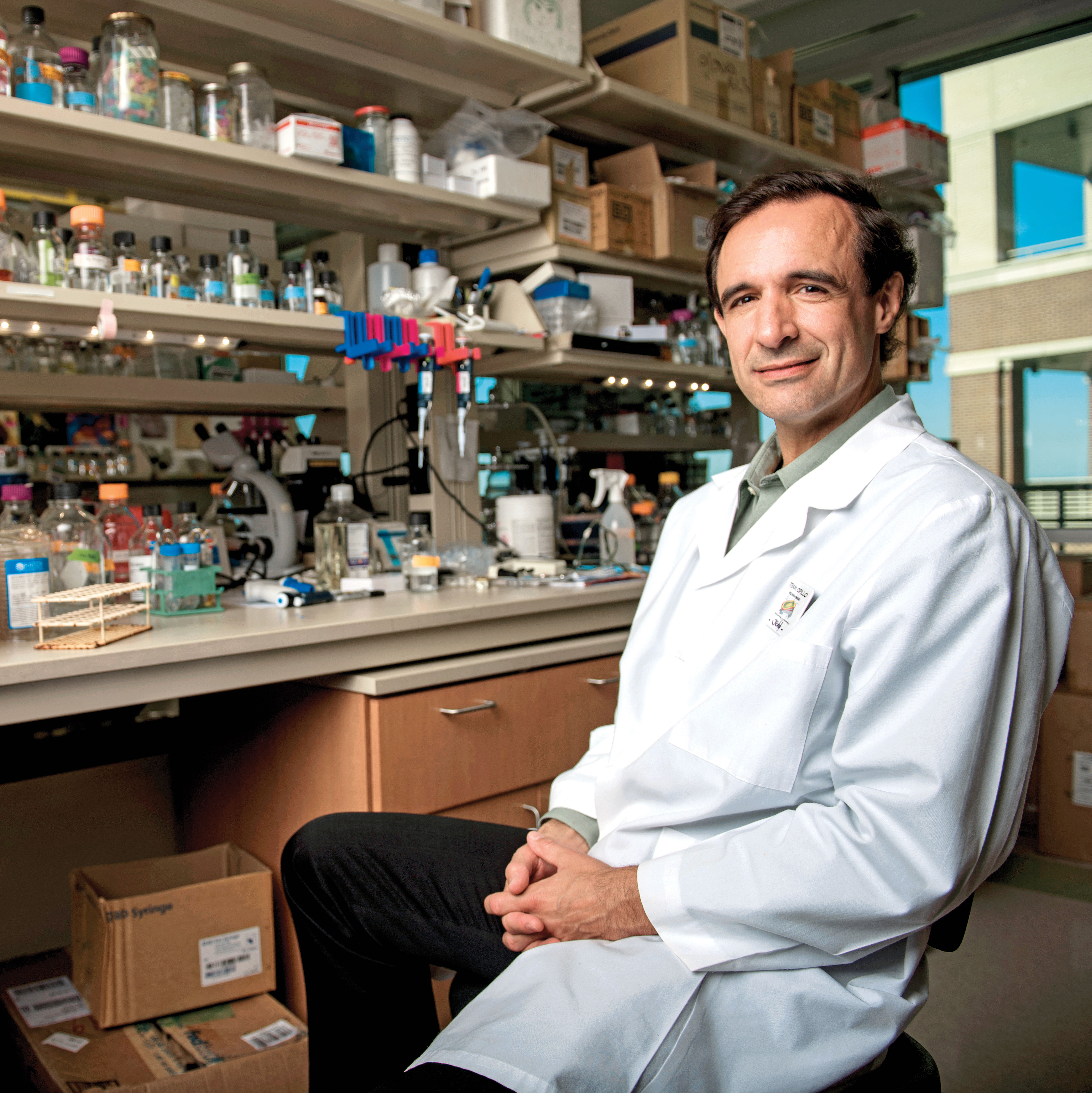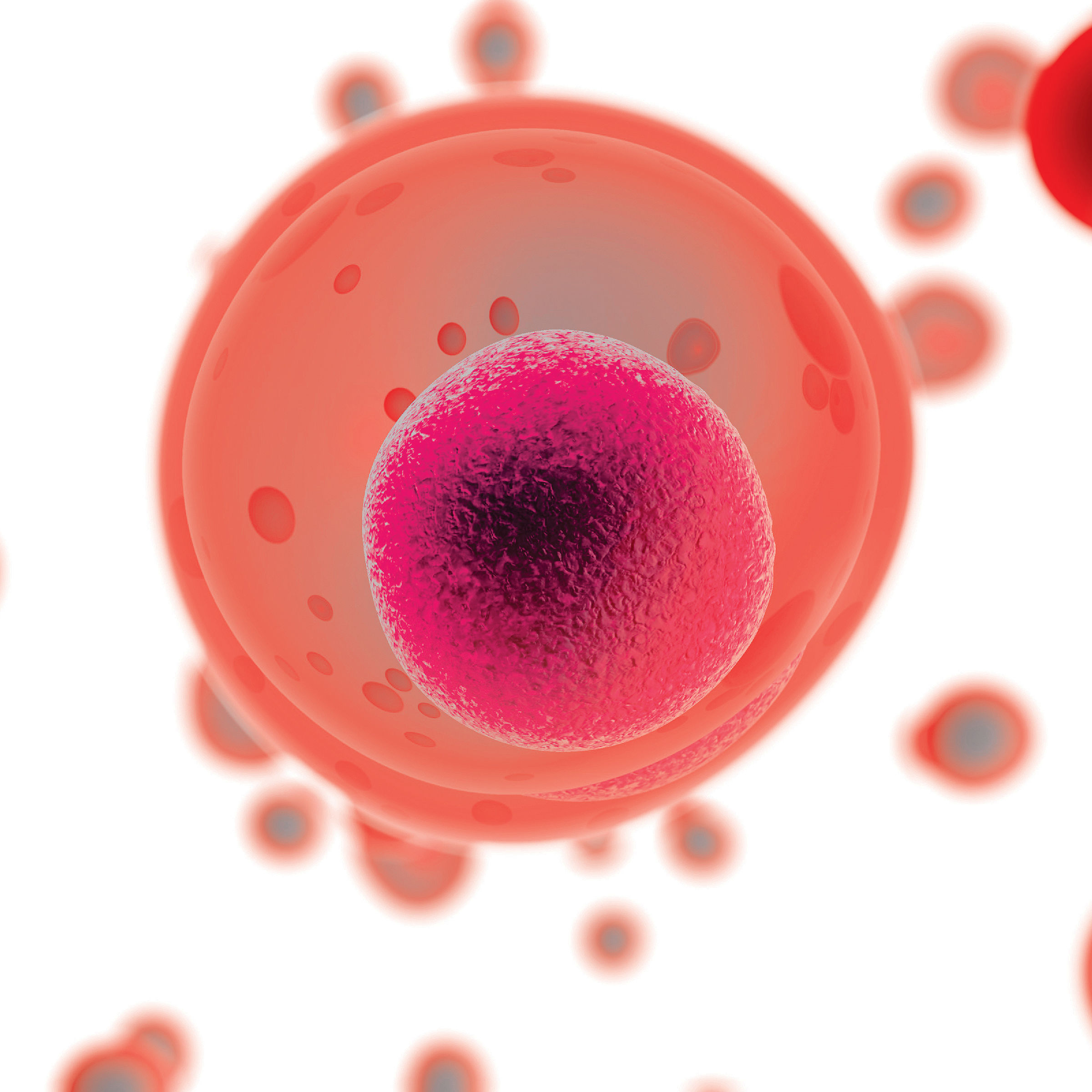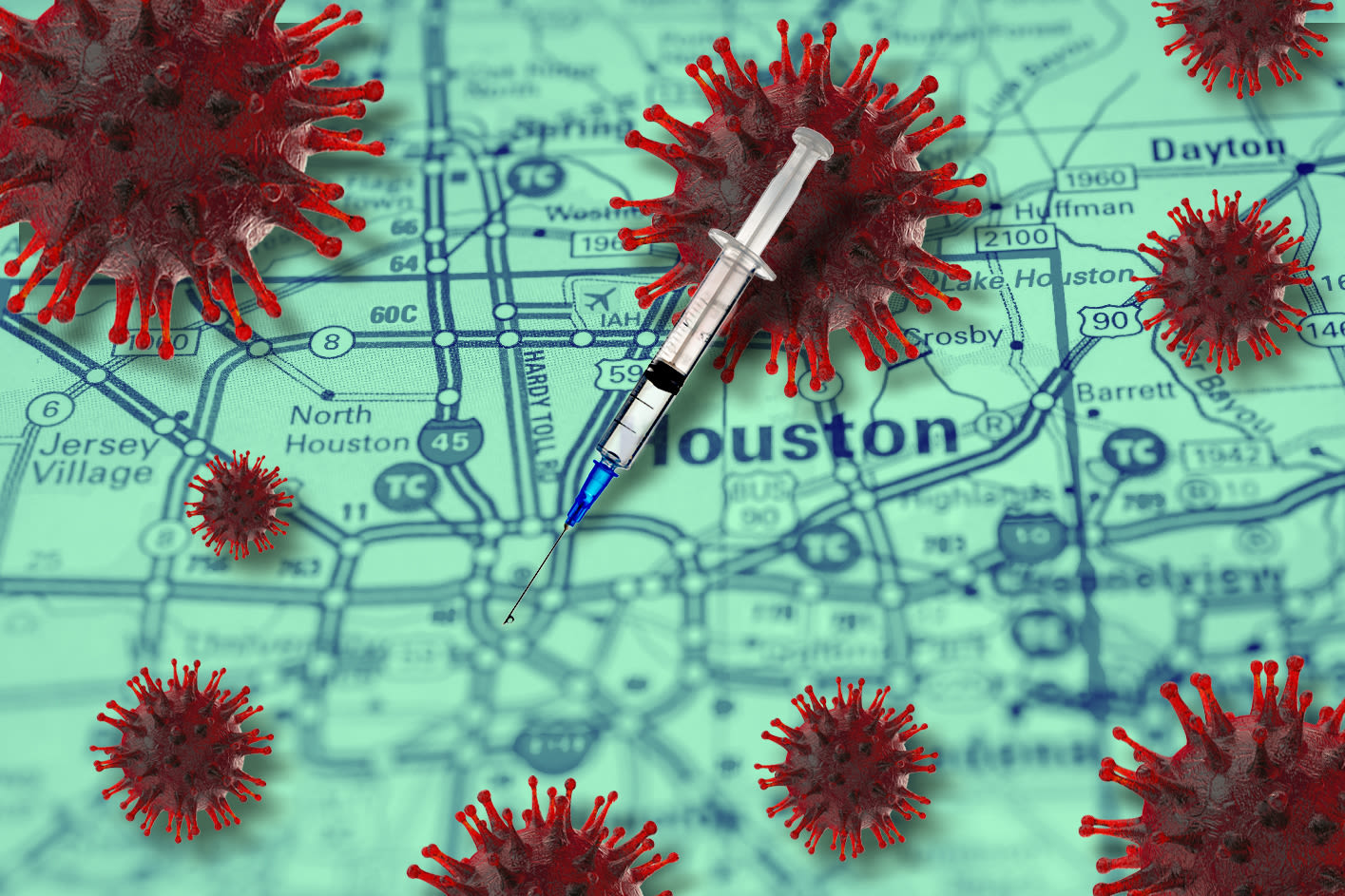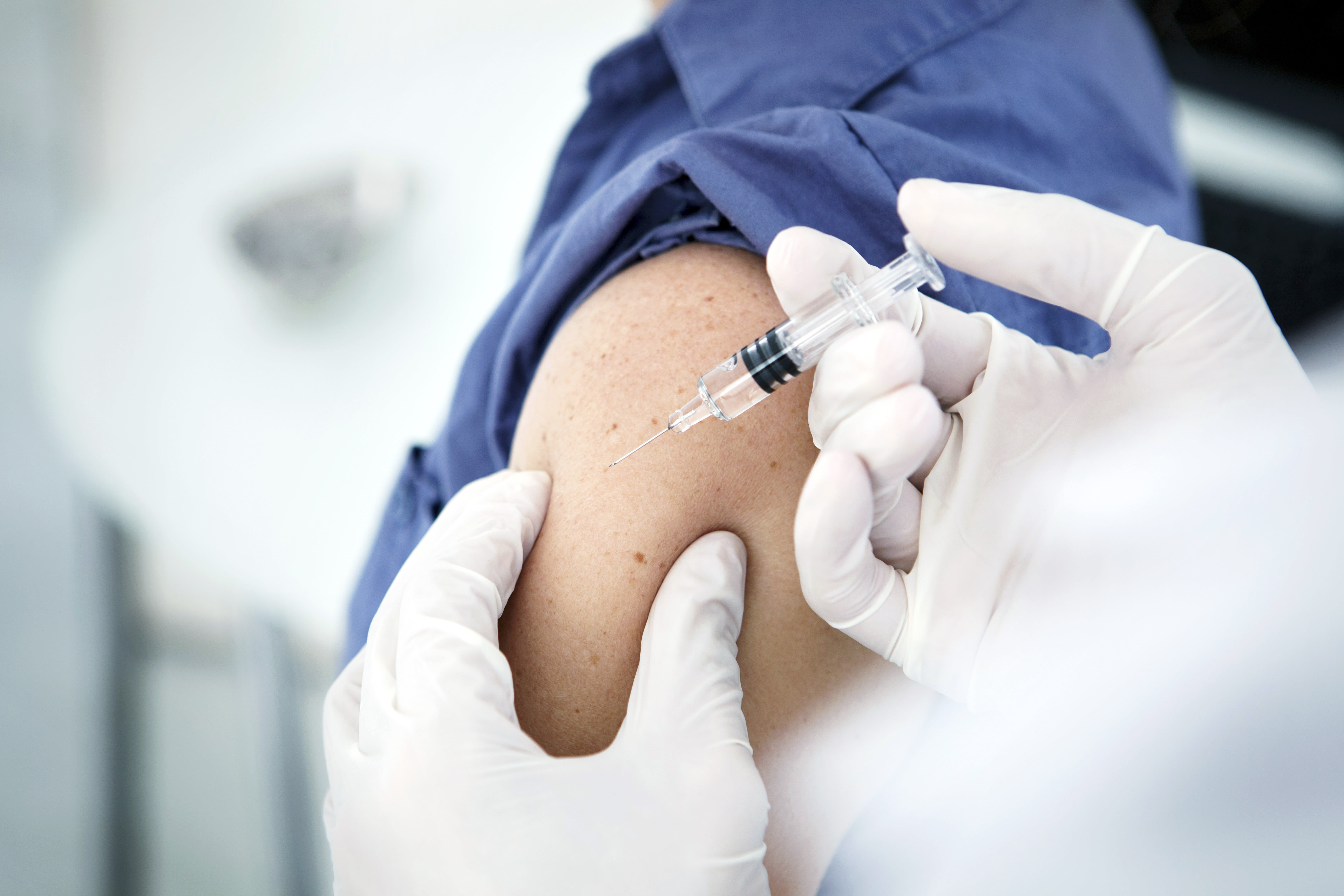Dr. Peter Hotez and His Team Are Searching for the Covid-19 Vaccine
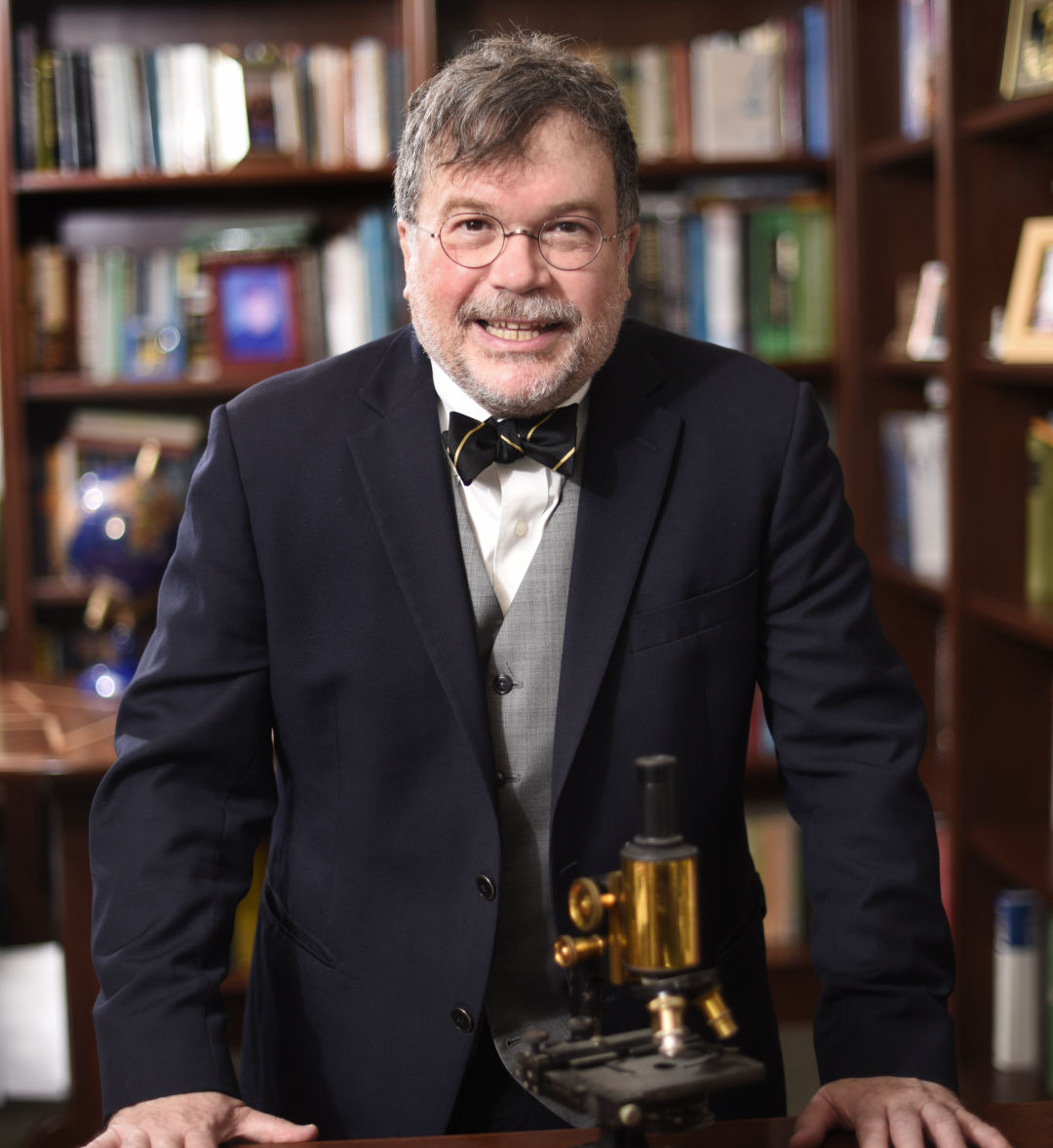
While donning his signature bowtie, Dr. Peter Hotez is looking for a Covid-19 vaccine.
DR. PETER HOTEZ HAS BEEN BUSY—SO BUSY, in fact, that when he missed an appointment for our phone interview, he called back and briskly apologized.
“Everything is blowing up,” he explained. Hotez is the guy who would know.
Perhaps not well known to the average Houstonian before June, Hotez, dean of the school of tropical medicine at Baylor College of Medicine, is an expert in infectious disease and vaccine development. He’s led teams working on vaccines for SARS and other headline-grabbing diseases in recent years. Since the onset of Covid-19, he’s rapidly become a household name as an advisor to the city and county, appearing on CNN time and again in his trademark bow tie to advise people to wear masks and practice social distancing as cases spiked across the Southwest. But behind the scenes, his primary focus has been on a single imperative task: the race to blunt the impact of the virus.
Of course, he’s not alone. Researchers around the world are looking for treatment plans and working on Covid-19 vaccines. According to Hotez, there are a number of vaccine trials getting underway in America and other countries, with more to come, including Operation Warp Speed, a program funded by our federal government, which aims to have 300 million doses of vaccine ready by January 2021. But Hotez has initially been skeptical that the program will come to the rescue against a virus that’s already altered how we live, work, and interact.
“The problem with Operation Warp Speed is there has been no published data,” Hotez says, echoing the concerns of some of his colleagues who’ve pressed the federal Department of Health and Human Services, which is overseeing the project, to release more data.
Hotez warns that while the program may produce a vaccine in record time—most require years to develop and get into the marketplace—it may not provide full protection from the virus. “That is pretty common,” he says. “The first vaccine is not always the best vaccine.”
So he and his team, co-chaired by Baylor microbiologist Maria Elena Bottazzi, are creating their own vaccine. Here in Houston Hotez’s team at Baylor, in partnership with Texas Children’s Hospital and the Seattle-based health nonprofit PATH, is working on a different approach. “We think our vaccine has the potential to be the first global health vaccine for Covid-19,” he says.
In fact, the team has been researching treatments and vaccines for coronavirus for over a decade and is now focused specifically on Covid-19. “We are pretty excited about this vaccine,” he says. “We think it might work better than Operation Warp Speed.”
The federal program may be impressive in its use of new techniques, but many scientists like Hotez feel the most effective approach lies in existing methods of creating vaccines, like those used for polio, measles, and hepatitis B. “Usually it’s the old-school technologies that produce high levels of virus-neutralizing antibodies,” he explains. “We’re using an old-school approach to solve an old-school problem.”
They hope to begin clinical trials later this year, but that still doesn’t address the problem of what is happening right now. Many had hoped the hot weather mixed with the Gulf Coast’s trademark humidity would finally be a blessing, hampering the spread of the disease. Instead case numbers exploded across the region as summer hit.
When we spoke to Hotez in late June, the rolling seven-day average of new cases in the Houston region was peaking at over 1,200 per day. The positive test rate for the virus, which had hovered around 5 percent for weeks, was now over 11 percent and climbing, and Harris County had just passed 300 total deaths. Mask orders were an accepted reality, and the threat of a second shutdown loomed over what is normally a time for vacations and backyard barbecues.
But that doesn’t mean all the news is bad. For one thing, doctors and researchers are starting to figure out the disease. “We’ve gotten a lot better at clinical care,” Hotez says. And while a vaccine may be a year or more away, he’s also confident that short-term treatments could be much closer. “I’m really excited about those,” he says. “It’s like a vaccine, but it’s a treatment that lasts for a short period of time.”
These kinds of treatments could be used not only to help sick patients, but also as short-term prophylactics for people who fear they may have been exposed to Covid- 19, or for first responders who are on the front lines. “That’s going to be very transformative,” Hotez says.
In the end, says Hotez, there’s no greater protection at the moment than keeping your distance from your fellow Houstonians and wearing a mask. Without a vaccine, effective treatments, or a cure, we don’t have much choice.

